KATHMANDU: Tiana (Asmita) Salles, a French journalist, has been navigating her unique place in society, along with her identity and life experiences that resulted from international adoption, feelings of abandonment, loneliness, self-discovery and bloodline, to a miracle and newfound consciousness in her mid-20s.
Her identity does not limit here. She is an artist and actress, who was born in 1993 in Kathmandu, Nepal.
Asmita was only six months old when she was adopted by a French couple who were deprived of the bliss of a child.
Her parents (Odile and Christian) never hid her adoption from her, but as she grew up, she realized from the eyes of others that she was different: she was brown, her parents white; they had blue eyes, hers were brown, among others. Most children shared these attributes with their parents, but she did not.
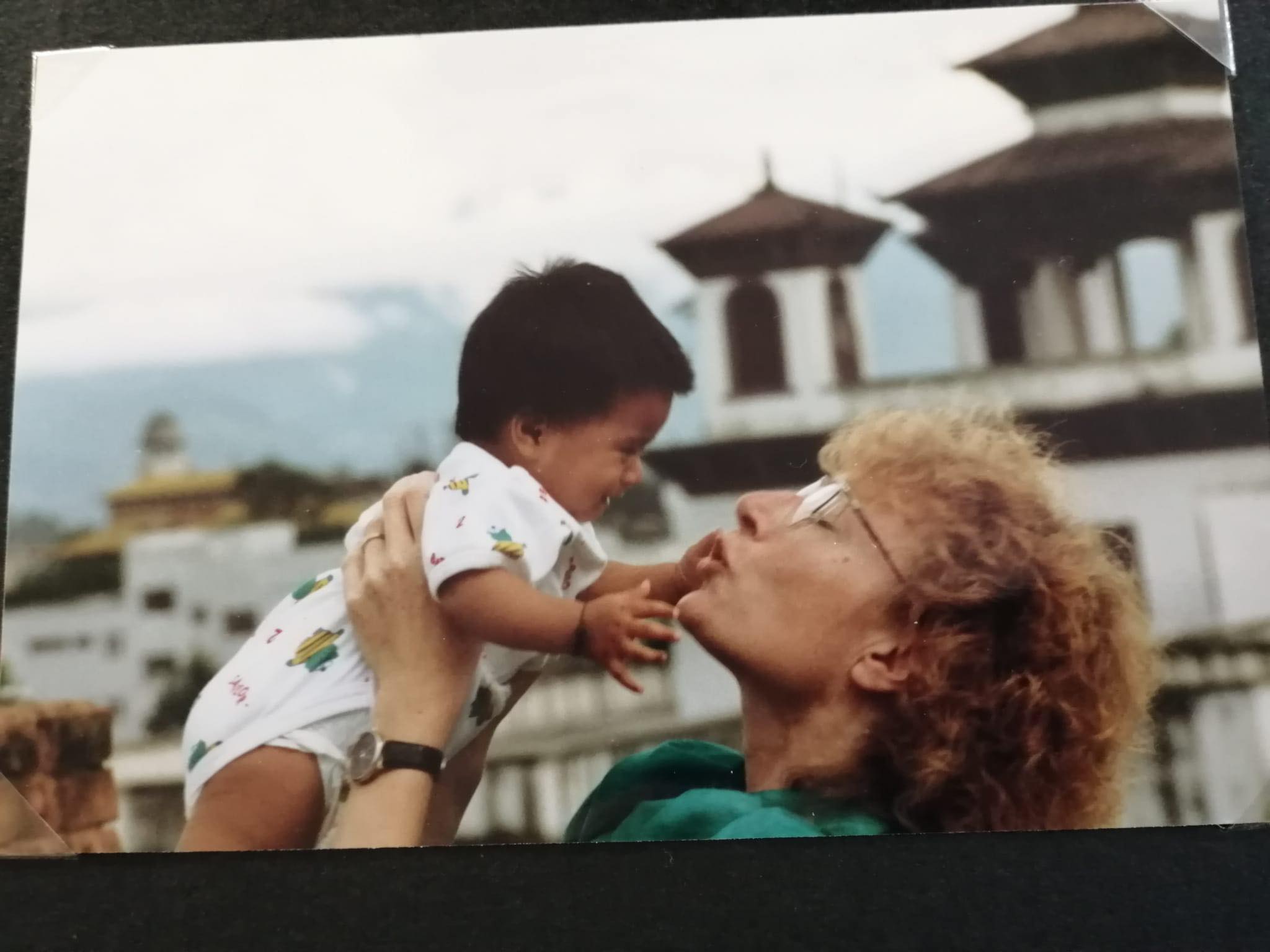
During Tiana’s teenage years, questions about her identity became more and more frequent and pronounced but it wasn’t until she was an adult that she took the steps to dig deep into her origins.
Adoption in France, codified in the French Civil Code, takes place in two forms: simple adoption and plenary adoption.
Her’s was plenary adoption where all legal ties to her birth family are severed and replaced with the rights and status granted by the adopter family.
Simple adoption, on the other hand, allows some of the legal bonds between an adopted child and his/her birth family to remain.
Tiana grew up in a context of continuous support, love and encouragement from her French parents. And they were always careful not to hide anything from her: they kept “Asmita” as her middle name, she always had access to her adoption file, they always told her everything they knew about her family (that she had two sisters, a description of her neighborhood that year and the fact that her mother gave her up and not abandoned her).
They always assured her that they would help her the day she wanted to put together the missing parts of her life.
It was a strange moment for Tiana; she didn’t know how to react – whether to shout with joy or cry or fall on the ground with godly gratitude. A thousand emotions were running through her mind at that moment. She knew “this is huge, this is huge — what is happening to me”.
To her French parents, Tiana expresses immense gratitude acknowledging that they gave her a chance at life, opportunity, and all-round support at every stage of her life.

“They always strived to maintain my links with other adopted children in Nepal. Moreover, they also established an heath-related association with other adoptive parents to continue to help children in Nepal,” she noted, adding, “For us, it was a way to meet once a year. It was a strong foundation for me.”
But in spite of everything, Tiana had always buried a feeling of abandonment, a fear of not being loved, a difficulty with attachment, contributing to a great anguish in her relationships. In adolescence this malaise gradually turned into a major eating disorder.
In 2019, finding her family had become a priority for Tiana, especially her two older sisters, of whom she only had photos from over 20 years ago.
“All of this forced me to go through a process, with myself at first. For several years, I got to know myself, I traveled a lot and then in 2019, I told myself that I was ready,” she says.
After years of ambivalence, she felt she was ready to make this journey. Her parents accompanied her on this journey. Quiet naturally, she began to scour social networks searching for the slightest resemblance of her sisters.
She realized quickly that she was reaching nowhere as she only had names, and a search of those names returned countless similar results. “It was too vast a search on social media,” she shares.
She also tried finding out about her sisters by reaching out to the school they went to. That too, to no avail.
After initial setbacks, a friend of her French parents introduced her to Roshan Bashyal in Nepal who ran an association that helped children in Pharping, Kathmandu.
Coming in contact with Roshan, she conveyed her mission and information to Roshan, and asked him to help her, with no more expectation that just trying find her birth family, to which he agreed.
This kind of research was a bit like throwing a lot of fishing rods hoping that one would catch the fish.
“After finding Roshan, I planned to come to Nepal to look for my family in April 2020 but my hopes and purpose were dashed by the unforeseen global COVID-19 pandemic that led to the closure of borders across the world seemingly indefinitely.”
Unable to travel during the pandemic, she urged Roshan to continue the search on her behalf.
Cooped up due to the pandemic when she very much wanted to march on a quest to quench some of her greatest curiosities, Tiana began writing a show. With the help of Mikael Fau (dancer, choreographer and director), she used this time of confinement to write “One Life, Two Selves” — a show about the quest for identity.
“In June 2021, we realized our first artistic residence. Little by little, this project had grown. A producer-turned-co-director Anne Lucie Viscardi and dancer Marion Gallet joined us. This project became the ‘project of my life’.”
“From a simple play, it became a real global project on adoption, with a book, a podcast, conferences, and much more to come,” says Tiana.
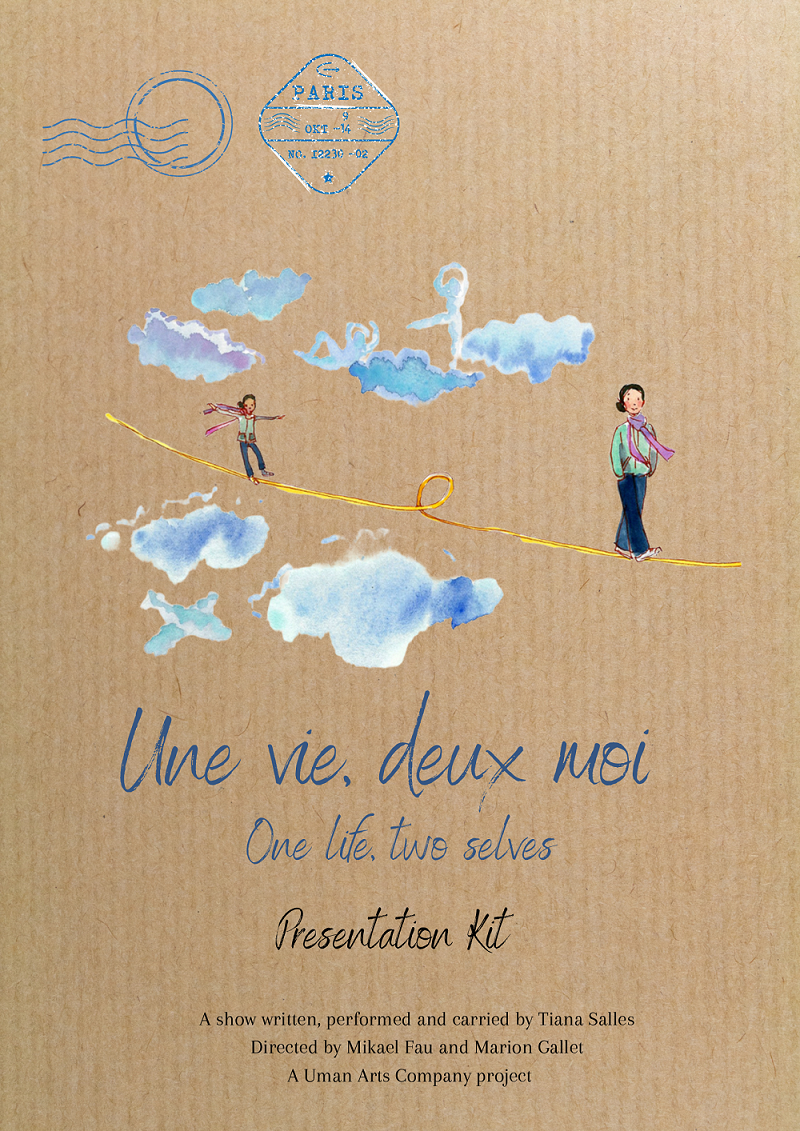
Meanwhile, with the combination of luck and hard work, while her search project was still growing, a small miracle took place on December 1, 2021.
After more than 2 years of searching, the news finally came on December 1, 2021: Roshan had traced her family.
“It was like any other day in Paris. My (French) mother had planned to visit me. She arrived in the late morning. We went to eat momos in a small Tibetan restaurant (which happens less than once a year!) and then we visited an exceptional exhibition on the Newar art of the Kathmandu Valley at the Guimet Museum of Asian Art,” Tiana recalled.
“In the afternoon, I received a message from Roshan urging to contact him as soon as possible. I couldn’t answer immediately. So, I told him I would call him late afternoon.”
“I still remember the exact moment. I was walking on a bridge over the Seine, it was dark; I called Roshan on video. He told me ‘Tiana, I found your family’. At that moment, I learned that they were alive; he had their names, their WhatsApp numbers and Facebook profiles.”
It was a strange moment for Tiana Asmita; she didn’t know how to react – whether to shout with joy or cry or fall on the ground with godly gratitude. A thousand emotions were running through her mind at that moment. She knew “this is huge, this is huge — what is happening to me?” It was a fortunate stroke of serendipity.
The story got more real in the next few hours after she was on a video call with her sisters. “They were there. For the first time in 28 years, I was seeing people sharing the same bloodline. It was like an earthquake for them too,” she shares.
“For me, it was the culmination of a long quest. It was also a lot of fears that arose such as ‘Will they agree to see me, talk to me, meet me’, ‘Will they remember me?’”.
She also starkly realizes that she has a French culture now, a family in France, and a very different upbringing. She doesn’t speak Nepali, her liberal ideals seem to contrast with the ideals of Nepali society.
It took Tiana several more months to book her plane tickets. And finally on April 30, 2022, she arrived alone in Kathmandu and met her family.
The missing puzzles had been finally pieced together, and the blank pages of consciousness were filled as Tiana Asmita met with her birth family, interacted with them and could relate to shared physical attributes with them.
Her biological Nepali family – her mother and sisters – were all well in Nepal and were very happy to see her in person.
For Tiana, this search of identity proved to be an important step in her life. She has reconnected with her bloodline, her origins. She has found a strong link, and has been welcomed with a lot of warmth and love in this Nepalese family.
Meanwhile, she also starkly realizes that she has a French culture now, a family in France, and a very different upbringing. She doesn’t speak Nepali, her liberal ideals seem to contrast with the ideals of Nepali society.
Even though it is still strange for her to face this new identity between Nepalese origins and French culture, she considers that it is the beginning of a story.
She has to navigate ahead; a lifetime in front of her. She needs to find her place and develop herself through her unique standing in terms of origins, upbringing, identity, parenthood, social norms, education and culture. Nevertheless, she is also very very happy and says, “I am really lucky. I have two families with values, two loving families.”
Tiana is still in the process of processing all these events, nevertheless, she knows now that that little part of herself that she knew was missing is no longer missing.
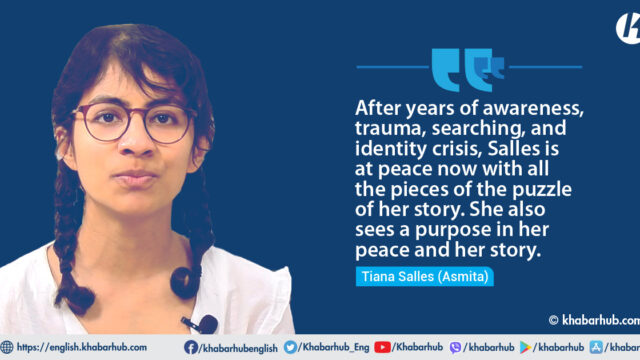
Rest assured, she is in peace and determined to move ahead and help others in similar shoes, especially internationally adopted children who like her go through unique knowledge and awareness as they discover and connect with their roots and re-invent themselves in the societies they live.
“Adoption has its grey areas, its misunderstandings on both sides. The changed stories need to be clarified,” she says.
“My Nepalese family obviously did not understand all the ins and outs of international adoption. On the other hand, my French family had the wrong version of my story. Plenary adoption cuts the ties, causes added psychological trauma to the family giving up their child,” she adds.
When asked what glaring difference she found between French and Nepali society, she quickly noted the role of women in the two societies.
“Here in Nepal, by Nepali standards, girls normally ought to get married at the age of 21 but in the culture I grew up in, there are no boundaries for women. I am free and independent and can make choices and decisions on my own. I found that the role of Nepali women is confined to home with less freedom and independence.”
After years of unique awareness, searching, and identity crisis, Tiana Asmita is at peace now with all the pieces of the puzzle of her story. She also sees a purpose in her peace and her story.
“I will be able to move forward with serenity now. I will develop a theatre project to convey the story of adoption, the quest for identity and the intent of resolving misunderstandings. It all makes even more sense now. I hope to realize it and testify about my story to the millions of other adopted children, especially those internationally adopted.”
“There is a universal dimension in my story, I hope that my story can serve to open a dialogue on this complex theme of international adoption,” says Tiana.


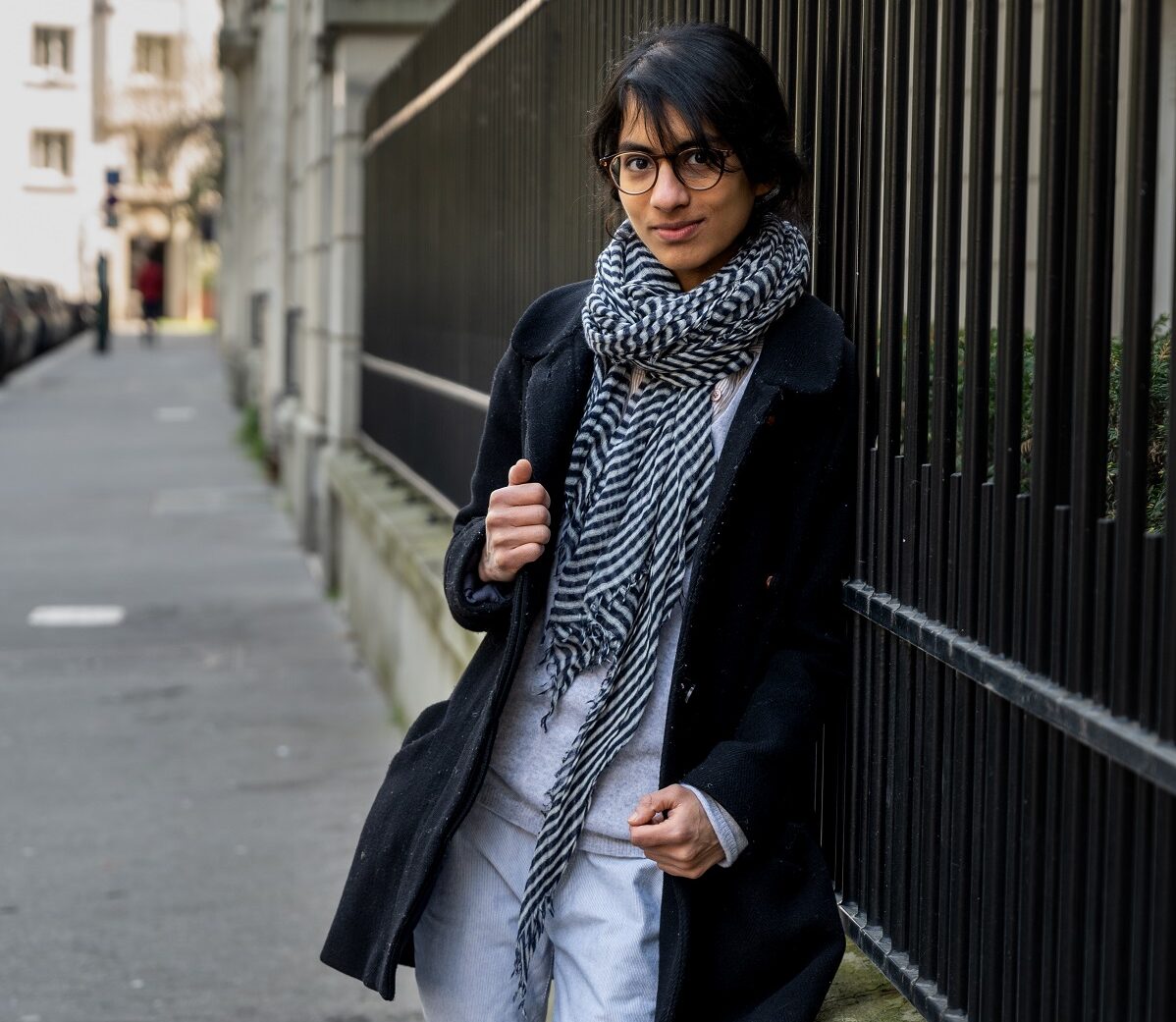
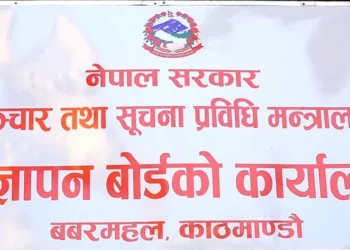
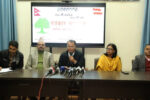


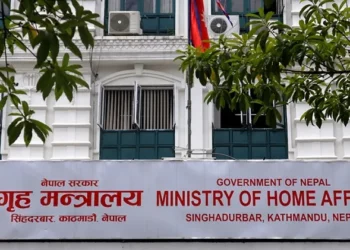

Comment